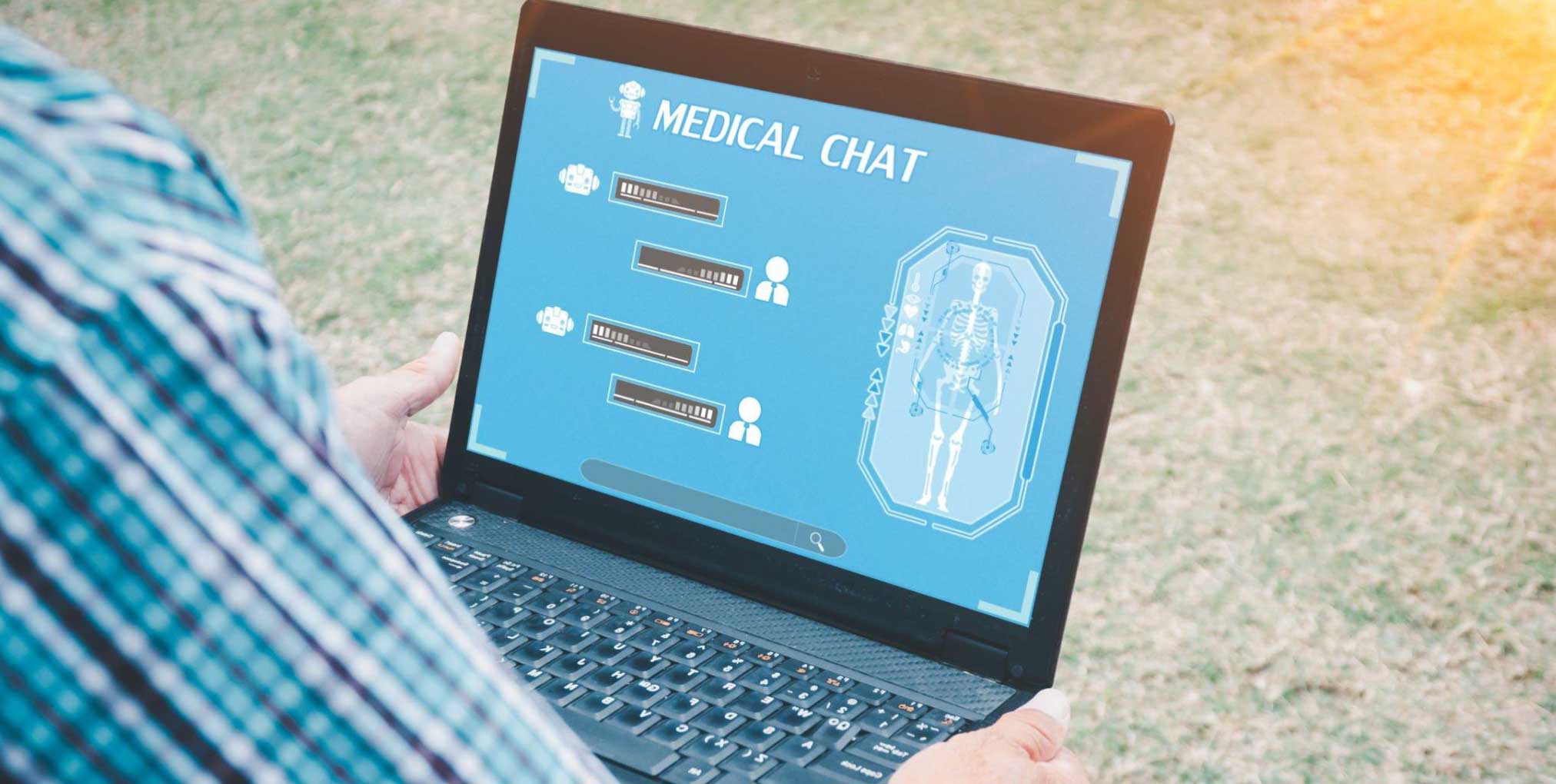

September 28, 2023
Artificial Intelligence (AI) has made remarkable strides in revolutionizing various industries, and healthcare is no exception. Among the AI-powered tools enhancing healthcare services, AI Chatbot for Healthcare stand out as versatile, efficient, and highly beneficial. In this article, we’ll delve into what AI Chatbots are, their advantages to healthcare, and their diverse use cases.
Artificial intelligence (AI) is a branch of computer science that creates intelligent agent systems that can reason, learn, and act autonomously. AI research has successfully developed effective techniques for solving various problems, from game playing to medical diagnosis.
AI chatbots are computer programs that can simulate conversations with human users. AI chatbots are trained on large datasets of text and code. They use this knowledge to answer questions, provide information, and complete tasks.

Chatbots have several potential benefits for the healthcare industry, including:
AI chatbot for healthcare can give patients access to basic medical advice and information 24/7. It can be especially beneficial for patients in underserved communities and remote areas.
AI chatbots can help to reduce healthcare costs. They do it by automating tasks. Tasks like scheduling appointments and processing insurance claims. It can free healthcare professionals to focus on more complex tasks and provide better patient care.
AI chatbots can help improve healthcare quality. It can provide patients with personalized information and support. AI chatbots can remind patients about medication schedules. Also, monitor their symptoms and provide feedback on their overall health.
AI chatbot solutions can help improve patient satisfaction. It provides a convenient and easy way to access healthcare information and services.

AI chatbot services are available round the clock, providing instant responses to patient inquiries and concerns and ensuring continuous support outside regular working hours. This accessibility improves patient satisfaction and reduces the burden on healthcare staff.
Chatbots can assess the severity of a patient’s condition by asking relevant questions and then schedule appointments accordingly. It streamlines the patient intake process, ensuring that critical cases receive immediate attention while non-urgent cases are designed appropriately.
Chatbots can disseminate accurate health information to users, helping them better understand their conditions, medications, and treatment options. Patients can access educational resources, reducing misinformation and fostering informed decision-making.
AI Chatbots can send medication reminders and dosage instructions to patients, reducing the risk of missed doses and improving treatment adherence.
Chatbots can monitor patients with chronic diseases by collecting and analyzing data, such as blood pressure readings and glucose levels. Alerts can be generated for healthcare providers if the Chatbot detects abnormal data patterns, allowing timely intervention.
AI chatbot Software can provide emotional support and resources to individuals with mental health issues, offering a safe space to express their feelings. They can also detect signs of crisis and connect users to crisis helplines or professionals.
Chatbots can communicate with patients in multiple languages, eliminating language barriers and ensuring that healthcare services are accessible to diverse populations.
Automating routine tasks, such as appointment scheduling and prescription refills, reduces administrative costs for healthcare providers.
AI chatbots can be used for a variety of purposes in the healthcare industry, including:
AI chatbots can help patients schedule appointments with doctors and other healthcare professionals. It can be done through various channels, such as text messages, voice calls, and social media.

AI chatbots can inform patients about various medical topics, such as diseases, medications, and treatments. This information can be provided in multiple formats, such as text, images, and videos.
AI chatbots can monitor patients’ health by tracking their symptoms, medication adherence, and other health data. This information can be used to identify potential health problems early and to provide patients with timely support.
AI chatbots can provide patients with customized care by tailoring their responses to their needs. For example, AI chatbots can remind patients about upcoming appointments, provide feedback on their health data, and connect them with resources to help them manage their health.
If you are considering implementing AI healthcare chatbots at your healthcare organization, choosing a development company with experience in the healthcare industry is essential. The development company should also understand your organization’s specific needs well.
Here are some factors to consider when choosing an AI chatbot development company:
This article has shown the Benefits of Chatbots in Healthcare. AI chatbots have the potential to revolutionize the healthcare industry by improving access to care, reducing costs, improving the quality of care, and enhancing patient satisfaction. Suppose you are considering implementing an AI chatbot in your healthcare organization. In that case, choosing a development company with experience in the healthcare industry and a good understanding of your specific needs is essential.
A: Chatbots can provide 24/7 access to essential healthcare services, answer common medical queries, and streamline administrative tasks like appointments and billing to give clinicians more time with patients. They also support telehealth and personalized engagement.
A: Chatbots are not meant to replace doctors but to assist them. They handle basic queries and tasks to free up doctors’ time for complex diagnoses and direct patient care. An experienced clinician always backs any critical medical advice.
A: Leading healthcare chatbot providers take extensive measures to ensure patient data privacy and security. Chatbots are also designed not to provide medical advice without licensed healthcare professionals’ confirmation. However, using chatbots affiliated with trusted hospitals and clinics is best.
A: Chatbots provide general health and wellness information to patients. For any critical medical query, the data is carefully reviewed by experts to ensure clinical accuracy. The intent is not to replace doctors but to guide patients to appropriate care.
A: Some chatbots are designed to provide round-the-clock support for conditions like depression and anxiety using techniques like cognitive behavioral therapy. However, they cannot completely replace therapists but help manage mild issues and guide patients to appropriate care and support.
A: Chatbots help improve access to care, streamline administrative workflows, reduce costs, engage patients more effectively, and gain insights into population health trends – all of which help healthcare providers and organizations deliver better outcomes.